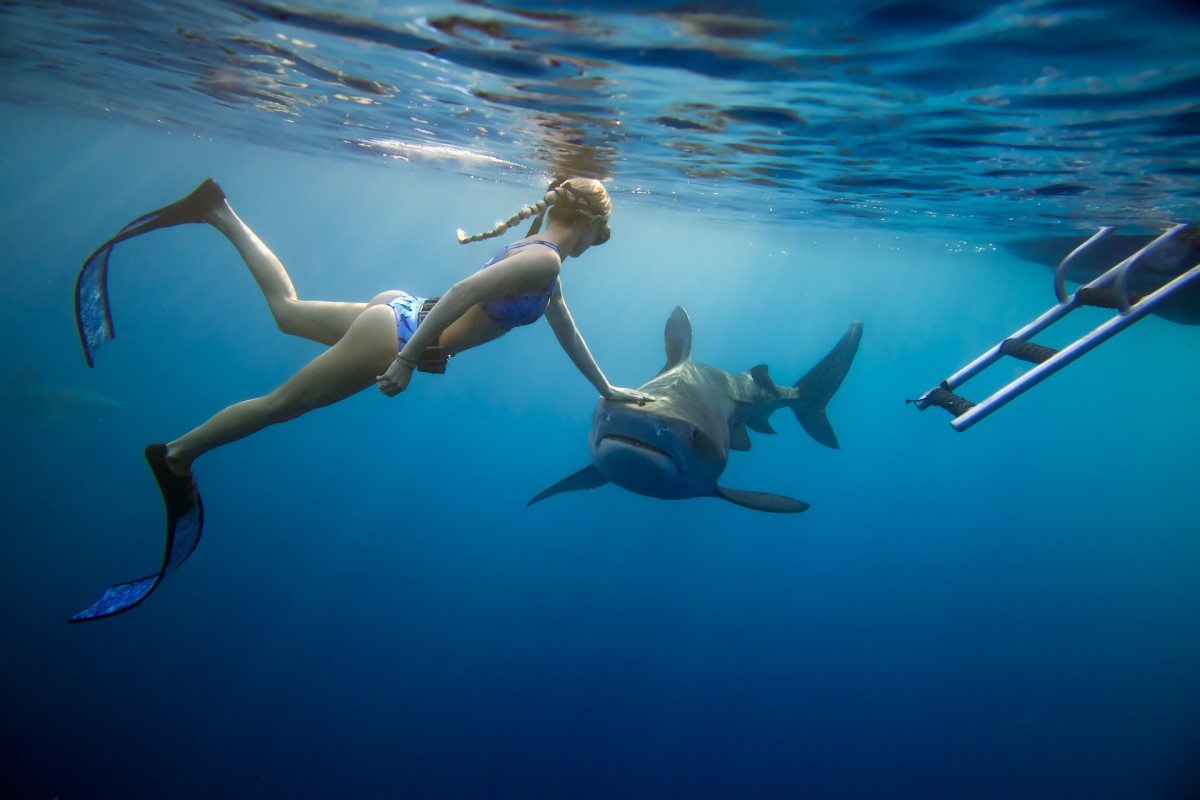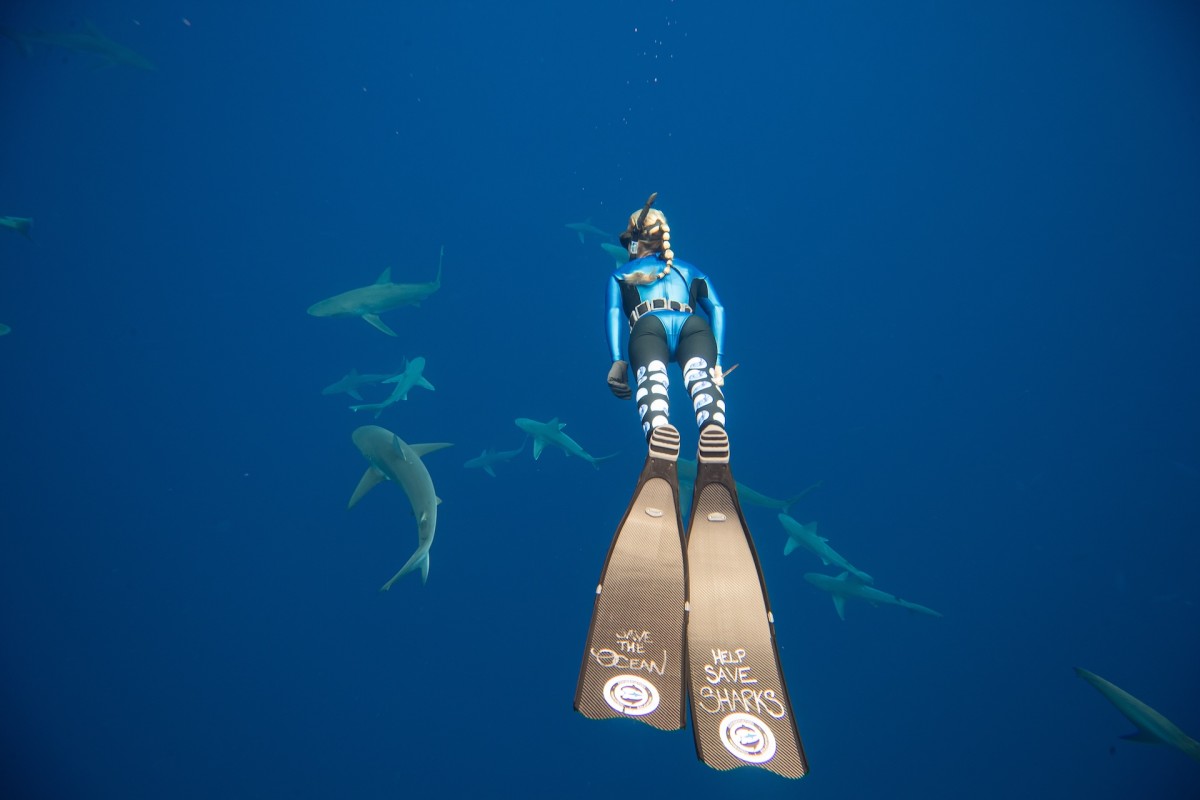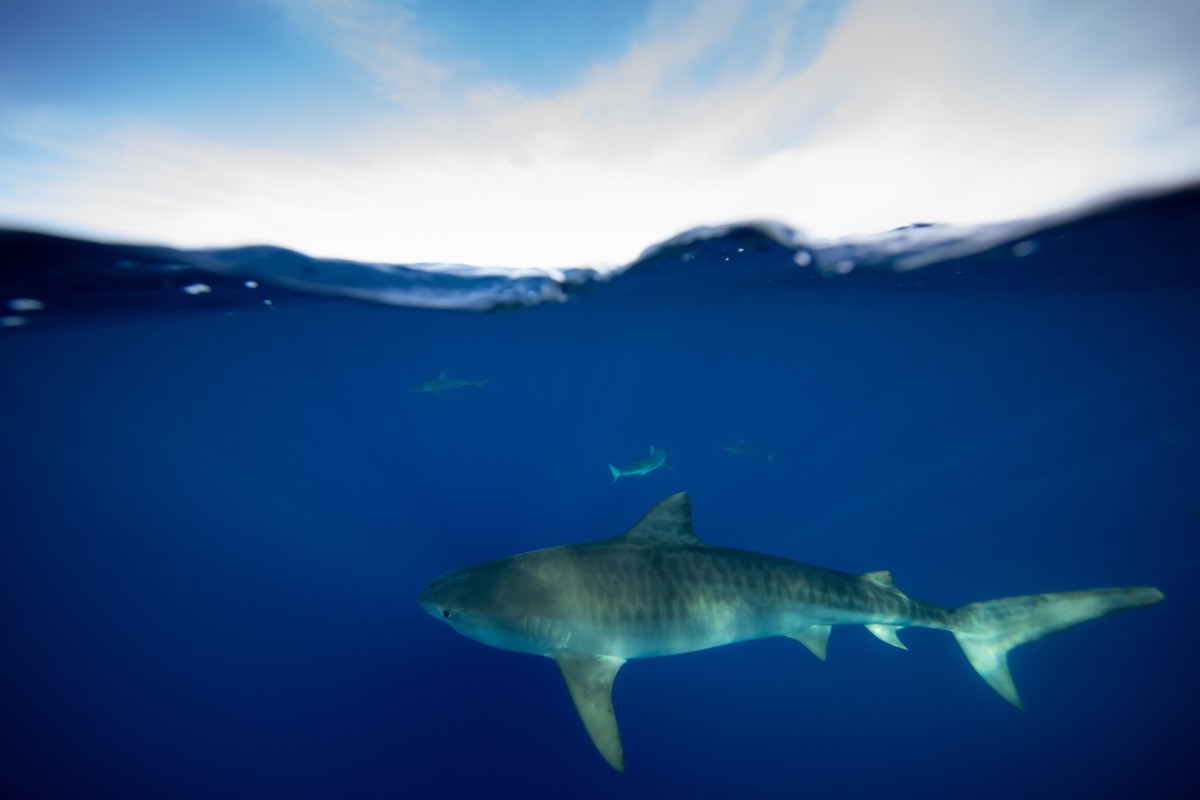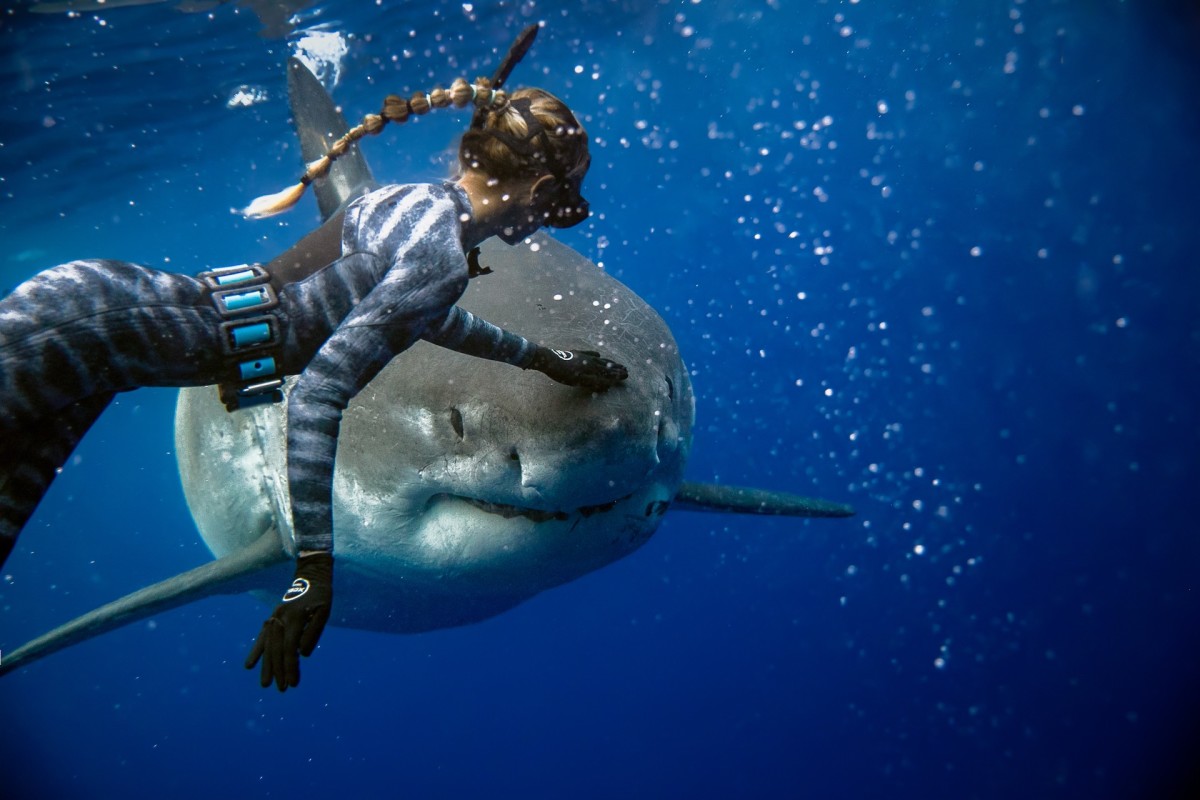Ocean Ramsey’s life is centered around the sea. The daughter of a swimmer and a diver, Ramsey grew up in Hawaii and was introduced to the ocean at a young age and quickly developed a passion for snorkeling and later, diving.
At age 7, Ramsey encountered her first shark. With no preconceived notions, she didn’t experience the fear that many would upon encountering an apex predator up close. Instead, she was fascinated. The formative experience set the trajectory for her life’s work.
Today, Ramsey interacts with sharks on a daily basis. She has worked with over 32 different species around the world and devotes her time to shark research and conservation. She is also the co-founder of One Ocean, a Hawaii-based research and dive operation that takes visitors on pelagic free-diving tours where they have the opportunity to encounter sharks up close, in the wild.
With limited knowledge compounded by Hollywood portrayals of sharks as vicious predators, many people fear sharks and, in turn, the ocean. While sharks should certainly be respected, there is more to them than just a toothy grin a deadly bite. Here, Ramsey shares common misconceptions about sharks and the best practices for staying safe in the sea.

MEN’S JOURNAL: What are common misconceptions about sharks?
OCEAN RAMSAY: Common misconceptions are if you pee in the water, they’re going to track you down and go after you. If you have a cut, they’re going to smell it and go after you. If a shark sees you, it’s going to go after you. That they eat anything.
Obviously those things are not true. Sharks swim by people all day every day and they choose not to attack—we know that from tag data and drone footage. I swim with them all day, every day. And given the opportunity, if they can distinguish us from a natural prey item, and they’re not in a starved-type condition or they’re not competing with each other, they’re not going to go after us.
There are less than 10 human fatalities, globally, each year. On the other side, 70-100 million sharks are killed each year mostly just for their fins.

What are some steps people can take to stay safe?
Assess environmental conditions. Don’t swim, surf, dive, or play in the water right in front of a river mouth or harbor mouth. Avoid swimming, splashing, and surfing around fishing piers or anywhere where you see someone fishing. Also, just avoid splashing on the surface in general; try to minimize noise. If you’re a swimmer, continuously look around—when I’m swimming, I like to scan underneath my arm and look back behind me and occasionally stop and turn.
What should you do if you encounter a shark?
The first thing you should do is look at it and face it—not just glance at it but actually face your body toward it. Sharks communicate with body language so you really want to make it clear to the shark that you see it. Then you should extend your fins or GoPro or anything you have toward the shark to have something that is a non-human appendage to extend your personal space cushion.
If it’s a very large individual, perhaps on the brink of starvation (this is very rare), it may continue to come closer and bump or bite your fins or your GoPro. At this point, you would want to put your hand on top of its head. You don’t want to turn your back to them, you don’t want to splash, and you don’t want to swim away quickly—just slowly back away. But usually just facing them, looking at them, putting your fins toward them, and standing your ground is enough for them to come up and then turn off to the side.

What advice would you offer to someone who is afraid of sharks?
Come diving with me! Get over that fear and don’t let it hold you back in life. My parents always said, “If you don’t understand something, shed light on it and learn as much as you can about it.” I think that when people learn about things, they can better appreciate them. That’s important for conservation because when people understand and appreciate sharks, they’re more likely to help protect them.

How do you wish people perceived sharks?
I wish that people looked at sharks as just as important as dolphins and whales. Sharks are essentially like the doctors of the ocean society. And they need to be protected because they keep diseases from spreading, and they impact all of the lower trophic-level populations. Hollywood emphasizes sharks as monsters, but they’re not. They are apex predators, but they are the most polite predators, the most intelligent predators, and people don’t give them credit for that. And they are really important for marine ecosystems.

What’s something most people don’t know about sharks?
Sharks have a whole social hierarchy and body language. And each individual has its own disposition and temperament, aka personality. Sometimes people are surprised to realize that they have a language; it’s just a body language—kind of like sign language versus French.
— Find out more at One Ocean, and follow Ramsey on Instagram.
from Men's Journal https://ift.tt/3h59AO2
via IFTTT








they fasth silver wolf h
ReplyDelete